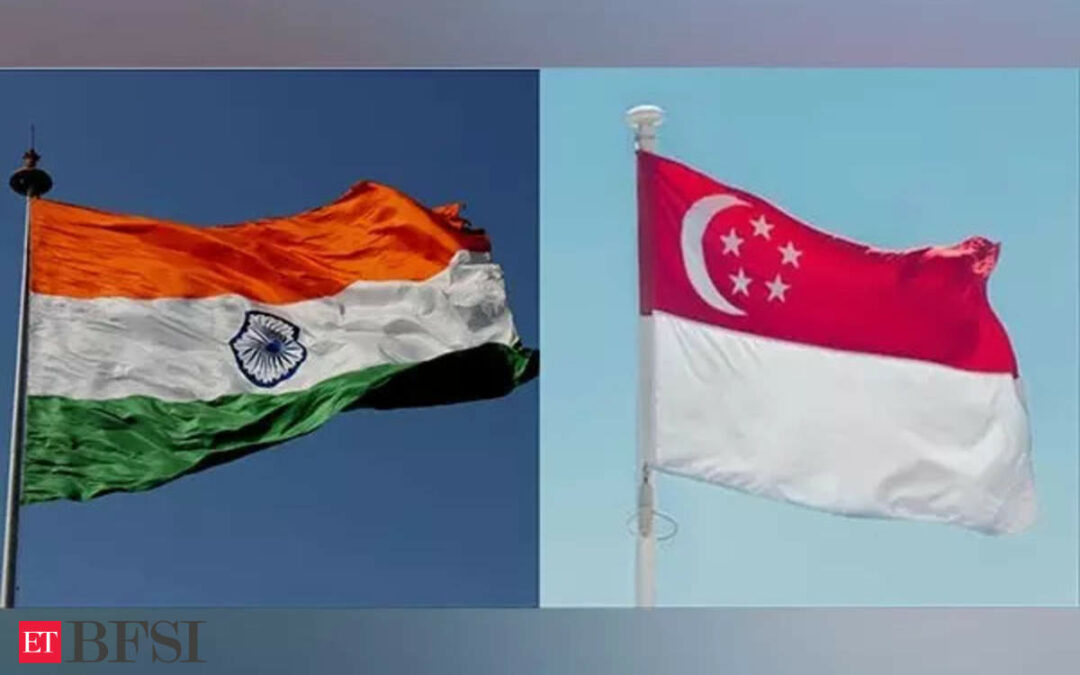New Delhi, India and Singapore are looking at firming up around half-a-dozen ambitious agreements to shore up cooperation in areas of green economy, digitalisation, energy, food security and healthcare soon with an aim to further bolster their strategic ties, diplomatic sources said on Tuesday. The pacts are likely to be finalised at the next meeting of the India-Singapore Ministerial Roundtable (ISMR) that is set to be held in the Southeast Asian nation by around September-October, they said.
“There is an intent on both sides to move forward on the ambitious agreements within the first 100 days of formation of a new government in India,” said a source.
Established to take the bilateral relations to a new level, the first meeting of ISMR took place on September 17, 2022 in Delhi and it identified digital connectivity, fintech, green economy, green hydrogen, skill development and food productivity as the key areas for deepening the bilateral ties.
The two sides are also exploring the possibility of cooperation in the semiconductor sector.
Singapore has been a key trading partner of New Delhi and cumulatively the city-state accounted for about 23 per cent of India’s FDI (foreign direct investment) equity inflows since 2000, according to official estimates.
Singapore considers India as an important engine of growth and it has been focusing on expanding the bilateral trade basket in the last few years.
Next year, India and Singapore will celebrate 60 years of diplomatic ties and it could be an occasion to unveil new measures to further cement the ties, said another source.
A key member of the 10-nation ASEAN (Association of Southeast Asian Nations) grouping, Singapore is seen by India as a crucial strategic partner in the Southeast Asian region against the backdrop of China’s attempt to expand economic and military influence in the Indo-Pacific.
“Both sides have agreed to ink key agreements to shore up cooperation in the areas of digitalisation, clean energy and green economy, food security, skill development and skills development,” one of the sources cited above said.
The two sides are expected to focus on new areas of cooperation at the second meeting of the ISMR that is slated to take place in Singapore this The inaugural ISMR meeting was attended by four senior Singaporean ministers — the then Deputy Prime Minister Lawrence Wong, Foreign Minister Vivian Balakrishnan, Minister for Transport and Trade Relations S Iswaran, and Minister of Trade and Industry Gan Kim Yong.
On May 15, Wong was sworn in as Singapore’s new prime minister. He succeeded Lee Hsien Loong who led the country for 20 years.
It is learnt that India is also keen to boost the overall defence cooperation with Singapore, especially in the maritime sphere.
There have been growing global concerns over China’s sweeping claims of sovereignty over all of the South China Sea, a huge source of hydrocarbons.
Several countries in the region including Vietnam, the Philippines and Brunei, have counterclaims.
India and many other democratic countries have been pressing for peaceful settlement of the disputes and for adherence to international law, especially the UNCLOS (UN Convention on the Law of the Sea).
There has been a significant upswing in India-Singapore economic ties in the last few years.
In February last year, the link between India’s UPI and Singapore’s PayNow was officially launched.
The PayNow-UPI linkage offers cheaper, faster, and safer cross-border retail payments and remittances, for businesses and individuals alike, directly between bank accounts or e-wallets, using mobile phone numbers.
The PayNow-UPI link is India’s first cross-border real-time payment systems linkage, and Singapore’s second (first with Thailand’s PromptPay).
Singapore is India’s largest trade partner in ASEAN. It is the leading source of FDI, among the largest sources of external commercial borrowings and foreign portfolio investment.
More than 80 per cent of listed offshore bonds by Indian issuers are listed on Singapore Stock Exchange (SGX).
Singapore-based investors have Assets Under Management (AUM) valued at over USD 100 billion in India.
Temasek Holding, a Singapore Government Fund, has invested USD 400 million in the National Infrastructure Investment Fund of India in 2018.
The Singapore sovereign fund’s India portfolio stands currently at USD13 billion, according to official data.










